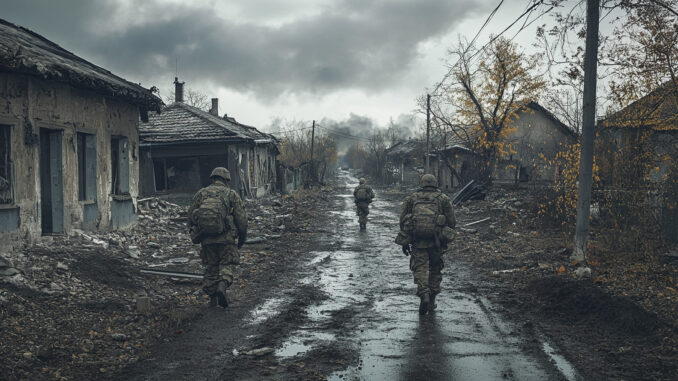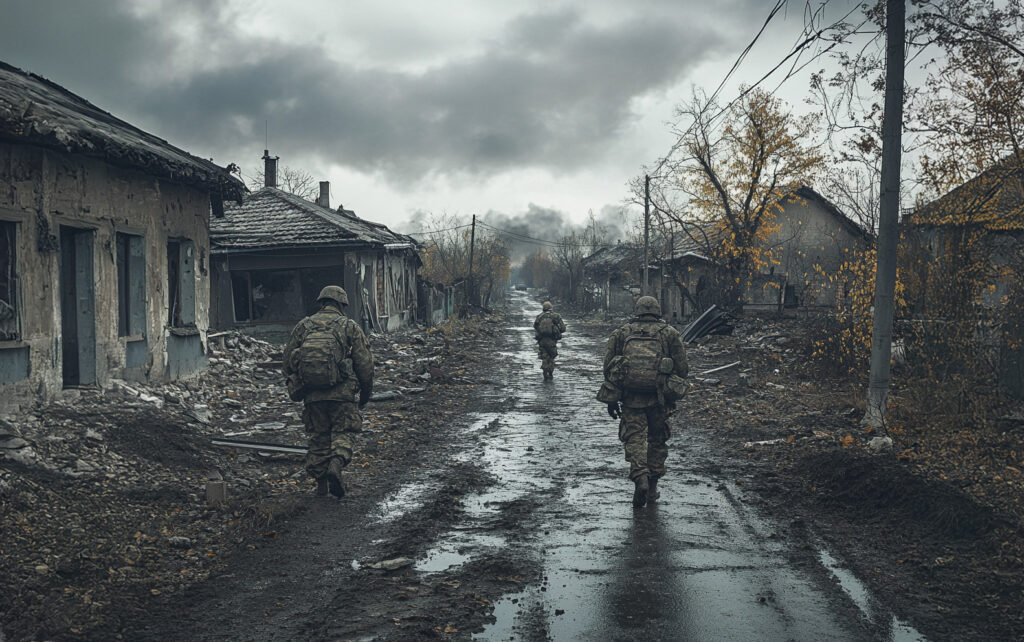
The Ukrainian incursion into the Kursk region, welcomed by Poland, calls into question the perception of Putin as a strong leader.
The Ukrainian incursion into Russia’s Kursk region on 6 August 2024 took the world by surprise, including its Western allies. Supported by Poland, this bold operation enabled Ukraine to capture several villages and disrupt Russian strategy. This strategic act not only weakened Vladimir Putin’s position, but also complicated Russia’s military response. Poland, through the comments of Major General Ireneusz Nowak, strongly supports this initiative, which it believes reveals the flaws in Putin’s leadership.
The Ukrainian incursion into the Kursk region: a strategic turning point
The Ukrainian incursion into the Kursk region marks a significant turning point in the ongoing war between Ukraine and Russia. Carried out on 6 August 2024, this operation surprised not only Russia, but also its Western allies, particularly the United States. The offensive enabled Ukraine to seize several villages and hundreds of square kilometres of territory, while capturing dozens of Russian soldiers. Although this advance was modest compared with the territories occupied by Russia, it had a considerable impact on Russian military strategy.
According to Major General Ireneusz Nowak, Inspector General of the Polish Air Force, this incursion is an ‘intelligent’ move that complicates Moscow’s strategic calculations. By disrupting Russian defence lines and forcing Russia to rethink its offensive strategy in the Donbass, this attack demonstrates Ukraine’s ability to take the initiative. For Poland, one of Ukraine’s neighbours that is strongly committed to supporting it, this operation demonstrates that Russia is not invincible and that it can be challenged on its own territory.
The impact of this incursion is not limited to the battlefield. It also has major political repercussions, undermining Vladimir Putin’s image as a strong leader and infallible strategist. This successful attack on Russian soil exposes Russia’s vulnerabilities and could well influence Russian public opinion, eroding support for the protracted war against Ukraine.
Polish support and the implications for perceptions of Putin
The Polish reaction to the Ukrainian incursion underlines the importance of this operation in the wider context of the conflict. General Nowak expressed his full support for the offensive, saying that it had ‘totally ruined the perception of President Putin as a strong leader’. Indeed, Ukraine’s ability to carry out such an attack within Russia’s borders calls into question Putin’s perception as a leader capable of protecting Russia’s territorial integrity.
For Poland, this support is not just symbolic. The country has been a staunch defender of Ukraine since the beginning of the conflict, providing not only diplomatic but also military support. The incursion into the Kursk region reinforces Poland’s position as a key ally of Ukraine in the region. By supporting this initiative, Poland is sending a clear message that it is ready to support Ukraine in offensive action, even if this means increased risks of tension with Russia.
This support could also have implications for NATO, of which Poland is an active member. Indeed, the Ukrainian operation could encourage other members of the alliance to adopt a more aggressive stance towards Russia, particularly if Ukraine’s actions continue to show positive results on the ground. This could potentially lead to an escalation of the conflict, with implications for security in Eastern Europe.

Strategic consequences for Russia
The Ukrainian incursion into the Kursk region presents a strategic dilemma for Russia. Not only has the attack exposed the flaws in Russia’s defence, it has also forced Moscow to reconsider its strategy in the conflict. As David Cohen, Deputy Director of the CIA, has pointed out, this incursion could well have a significant impact on the dynamics of the conflict, by forcing Russia to defend its own borders rather than focusing solely on the offensive in Ukraine.
The fact that Ukraine has succeeded in establishing a front inside Russia is a blow to Putin, who has long advocated Russia’s invulnerability to outside aggression. This situation calls into question the effectiveness of Russia’s strategy of gradually eroding Ukrainian resistance while banking on a weakening of Western support. Russia now has to fight not only to maintain its gains in Ukraine, but also to protect its own territory, which disperses its forces and complicates its military operations.
This new reality could push Russia to adopt more drastic measures, notably by reinforcing its border defences and stepping up its mobilisation efforts. However, this could also prove counter-productive, by exacerbating internal tensions in Russia and increasing the pressure on Putin to achieve tangible results in the conflict. The possibility of a Russian counter-attack in the Kursk region seems inevitable, but it could prove costly and difficult to achieve, given Ukraine’s defensive preparations.
The role of the United States and the implications for NATO
The Ukrainian incursion into the Kursk region puts the United States in a delicate position. Since the beginning of the conflict, the Biden administration has tried to moderate Ukraine’s actions by prohibiting the use of US-supplied weapons for attacks on Russian soil. However, the success of this incursion calls this policy of restraint into question and could lead Washington to reconsider its restrictions.
Ukraine’s calls for greater freedom of action, particularly with regard to cross-border strikes, are putting the White House under pressure. Although Washington has recently relaxed some of its restrictions, allowing limited cross-border strikes, restrictions remain on targets deep inside Russian territory. The incursion into Kursk could prompt the Biden administration to reconsider its position, especially if other NATO allies, such as Poland, continue to support these offensive actions.
For NATO, this situation could also lead to internal debates on the strategy to adopt towards Russia. The alliance, which has so far maintained a defensive stance, could be tempted to adopt a more proactive approach if the Ukrainian actions continue to show results. However, this entails risks of escalation, particularly if Russia perceives these actions as a direct threat to its national security.
An operation that redefines strategic balances
The Ukrainian incursion into the Kursk region is more than just a tactical victory; it redefines the strategic balance in the conflict between Ukraine and Russia. By disrupting Russian strategy and exposing the weaknesses in Putin’s defence, this operation demonstrates that Ukraine is capable of taking the initiative and bringing the conflict to Russian territory. Supported by allies such as Poland, this incursion could well influence the future dynamics of the conflict, forcing Russia to re-evaluate its strategies and forcing NATO to reconsider its position.
As the conflict continues, the impact of this incursion could be felt far beyond the battlefield, influencing public perceptions in Russia and altering the strategic calculations of both sides. For now, Ukraine has succeeded in dealing Russia a symbolic and strategic blow, but the repercussions of this action could well define the next stages of the conflict.
War Wings Daily is an independant magazine.